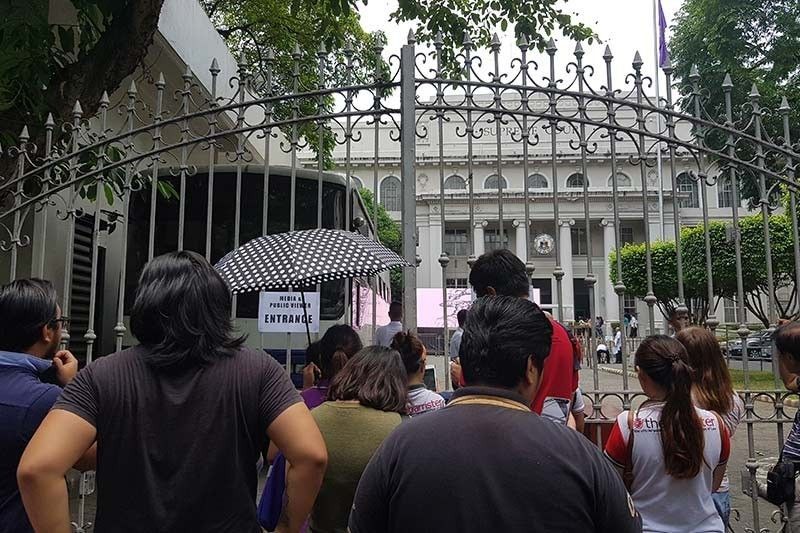SC tackles petitions vs centralized law school exams

MANILA, Philippines — Does a centralized entrance exam to law schools infringe on academic freedom enshrined in our Constitution? Justices discussed this on Tuesday.
The SC en banc held long oral arguments on the petitions assailing the conduct of the Philippine Law School Admission Test. It stemmed from petitions filed by retired Makati Regional Trial Court judge Oscar Pimentel and a group of law students in 2017 and 2018, respectively.
They asked the SC to strike down Republic Act 7662 or the Legal Education Reform Act—that created the Legal Education Board—as unconstitutional. The same republic act was the basis for the memorandum that ordered the conduct of PhiLSAT.
Karla Marie Tumulak, counsel for the petitioners, raised the case of Francis Jose Lean Abayata who passed his law school subjects from the first semester but was forced to leave law school because he did not pass the PhiLSAT.
Who can study law?
Petitioners argued in their petitions that the Constitution states that “the admission to the practice of law, the integrated bar, and legal assistance to the underprivileged” is a power given to the SC and not to the LEB.
During the interpellation, Senior Associate Justice Antonio Carpio asked Tumulak if the petitioners meant that the SC has been “derelict” or neglecting its duty to regulate admission to law schools.
“Unfortunately, yes your honor,” the lawyer said.
Tumulak explained that they believe that a law school is “part and parcel” of the admission to practice law.
The justice, however, pointed out that there are some who study law but opt not to take the bar exams.
Academic freedom
Associate Justice Marvic Leonen, for his part, stressed that academic freedom should also be considered in tackling the petitions and how it was defined by the Constitution.
Leonen propounded his questions at former Ateneo de Manila School of Law Dean Sedfrey Candelaria who was invited as a “friend of the court” or as an expert.
Leonen, who is a former dean of the University of the Philippines College of Law, pointed out that Article 14, Section 5 and paragraph 2 of the Constitution pertains to who to admit, who may teach, what can be taught and how and who to admit to study.
“It is only embedded or within schools of higher learning,” the justice added.
He furthered that if the Constitution should be read as a whole, should it also cover the admission to any level of education, including elementary level?
“Where do we stop?” Leonen added.
Candelaria said that while he said there should be a “continuum” in the concept, it should only cover on the preparation “into the practice of the law.”
“That would be far too impractical for the court to regulate,” Candelaria replied.
Leonen then challenged: “It is possible that the PhiLSAT is unconstitutional not because of the authority that granted it but because intrinsically, it may affect academic freedom.”
The justice ordered the parties as well as the experts to expound on this on their respective memoranda to be submitted in 20 days.
- Latest
- Trending


























